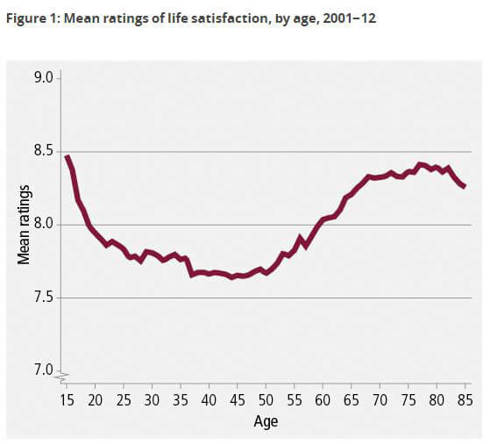One in three pensioners are living in extreme poverty
26/04/2023

One in three pensioners are living in extreme poverty – could you end up being one of them?
Imagine being forced to live with no hot water, missing meals to pay for medication or mashing your food to eat because you can’t afford to go to the dentist.
It’s the reality for many of us living on the Age Pension, according to a new study by Per Capita, The Benevolent Society and The Longevity Hub.
The report, titled ‘Adequacy of the Age Pension in Australia: An assessment of pensioner living standards’ found the base level of the pension meant many of the 1.5 million Australians on the payment were living with “profound levels of deprivation”[1].
Those most at risk? Older women who rent their home and rely solely on the Pension.
Life on the line
The base rate for the pension is $798 for singles and $602 each for couples.
The poverty line is $851.
Studies have shown the years between our late 60’s and early 80’s are meant to be the best of our lives[2][i], but what about the people who are living below the line?
“The bottom line is, if you are a single person receiving the age pension and you are not entitled to rent assistance because you own your own home ... then your living income is $56 below the poverty line,” Jo Toohey, Benevolent Society CEO and co-author of the report, said in an address to the National Press Club last week.
Those that don’t own their own home are even more vulnerable.
Home ownership a key factor
The report showed home ownership was a key factor in determining poverty. Pensioners who rented spent a significant amount of their payment on housing.
Picture this – you are a single woman in your seventies without any superannuation or savings. You don’t own your own home so you have to rent and it’s expensive – a room in a boarding house is the cheapest option at around $150 per week in Sydney or Melbourne.
You could move out to a rural or regional area to find a room that costs less, but you would be away from friends and familiar surroundings.
It’s a common situation and one that’s set to increase, with the number of 65-year-olds climbing to 120,000, a 200 per cent increase since 2000.
That’s a lot more people at retirement age who could find themselves in this same position – and without a voice.
Changes on the way?
In response, the report’s authors are demanding an independent tribunal be set up to assess the pension rate and advise a suitable level twice a year.
They have also called for homeowners’ assets to be subject to greater means testing to re-direct funds to renters. Ms Toohey said Australians needed to change their ideas about holding onto the family home to be able to tap into its wealth.
“I saw it every single day in aged care, the influence that family members would have in terms of retaining the family home because it was seen as an inheritance,” she said.
The report also recommended increases in rent assistance; better dental care services and a broadband supplement to help pensioners’ access health and government services online.
These recommendations are costed at an eye-watering $2 billion a year. However, Ms Toohey and her cohorts argue there are potential savings of $8 billion if the changes are implemented.
But with the Government set to introduce tougher assets test for the Pension from January next year, will they just be brushed under the carpet?
Are you on the Age Pension? Would you support changes to means testing for homeowners?
The Benevolent Society has created a video titled ‘Fix Pension Poverty’ to highlight this plight. You can watch it here.
https://aifs.gov.au/publications/life-satisfaction-across-life-course-transitions
https://thedonaldsonsisters.com.au/curse-65-year-olds/
[1] ‘Adequacy of the Age Pension in Australia: An assessment of pensioner living standards’ –Per Capita, The Benevolent Society and The Longevity Hub – September 2016
[2] ‘Life satisfaction across life course transitions’ – Lixia Qu and David de Vaus: Australian Family Trends No. 8 — September 2015https://www.agedcare101.com.au/articles/one-three-pensioners-are-living-extreme-poverty














